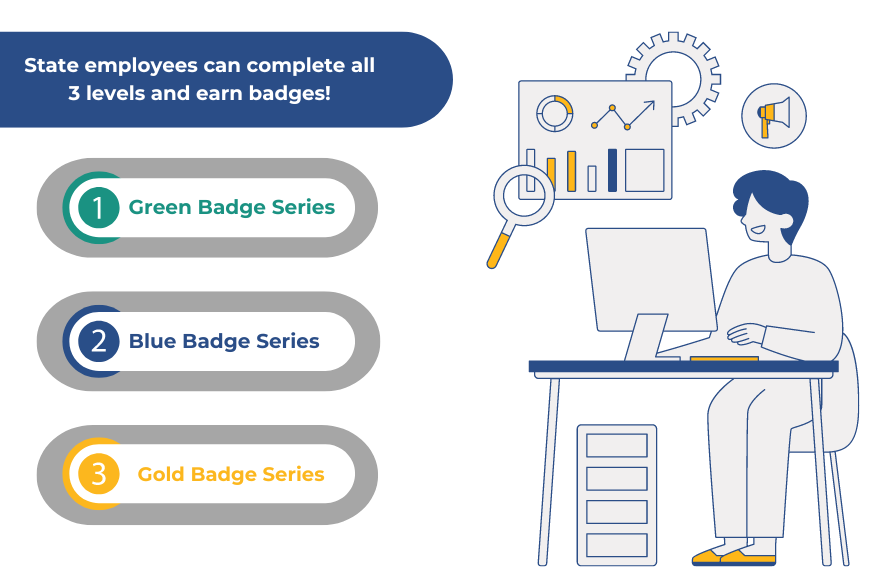- What score must I achieve on a particular quiz to earn a badge?
- What if I don’t pass the quiz? Can I take it again?
- What should I do with my badge?
- If I completed the Data Proficiency Program outside of SuccessFactors, will I need to retake it to receive credit?
- Where can I find the content if I’m not a state government employee or don’t have access to SuccessFactors?
State of Indiana employees take data literacy seriously
Many state employees have adopted the Data Proficiency Program as part of their usual training. Learn more when you visit the Data Proficiency Dashboard.


